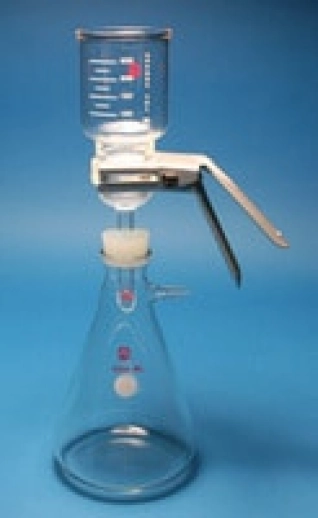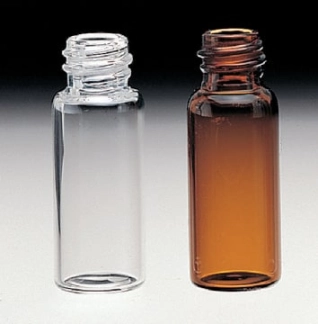{{ isErrorSetToBasket === false ? 'Товар добавлен вкорзину' : 'Не удалось добавить товар в корзину'}}
Перейти в корзину
{{Object.keys(error)[0]}}:
{{Object.values(error)[0]}}
Цена По запросу
Количество
Вы уже добавили максимально доступное на складе кол-во товара
Достигнуто максимально доступное кол-во
Под заказ
{{!!storageProduct ? 'На складе' : 'Под заказ'}}
Ожидается поставка
Description
General description
Peroxisome proliferator-activated receptor alpha (UniProt: Q07869; also known as PPAR-alpha, Nuclear receptor subfamily 1 group C member 1) is encoded by the PPARA (also known as NR1C1, PPAR) gene (Gene ID: 5465) in human. PPARs are members of the nuclear hormone receptor family of transcription factors that mediate a variety of cellular processes, including glucose and lipid metabolism, inflammatory responses, and regulation of apoptotic cell death. They act by binding to specific peroxisome proliferator-response elements (PPREs) on target genes. Three forms of PPARs have been described, which are designated as alpha, beta, and delta forms. PPAR alpha contains a DNA binding domain (aa 99-173) and a ligand-binding domain. It also has two NR C-4 type of zinc finger regions (aa 102-122 and 139-161) that bind to the regulator region of DNA when the receptor is activated. The ligand-binding domain has an extensive secondary structure of several alpha- helices and a beta-sheets. PPAR alpha heterodimerizes with RXRA and this heterodimerization is required for it DNA binding and transactivation activity. Two isoforms of PPAR alpha have been described that are produced by alternative splicing. PPAR alpha is expressed in skeletal muscle, liver, kidney, and endothelial cells and regulates lipoprotein metabolism. Its transcriptional activity is enhanced in the presence of insulin. Leukotriene B4 (LTB4) is shown to bind to PPAR alpha and induce transcription of genes of the omega and beta-oxidation pathways and clofibrate that binds to PPAR alpha accelerates catabolism of LTB4 in granulocytes and macrophages. PPARalpha-deficient mice show a prolonged inflammatory response when exposed to LTB4. GSK3-beta is reported to phosphorylate serine 73 on PPAR alpha, which in turn increases ubiquitination and protein turnover and reduces its activity.
Specificity
This rabbit polyclonal antibody detects Peroxisome proliferator-activated receptor alpha (PPAR alpha) phosphorylated on serine 73.
Immunogen
Epitope: unknown
KLH-conjugated linear peptide corresponding to 14 amino acids surrounding phospho serine 73 of human Peroxisome proliferator-activated receptor alpha (PPAR alpha).
Application
Anti-phospho PPARalpha (Ser73), Cat. No. ABE2888, is a highly specific rabbit polyclonal antibody that targets Peroxisome proliferator-activated receptor alpha (PPARalpha) and has been tested in Dot Blot, Immunocytochemistry, Immunohistochemistry, Immunofluorescence, and Western Blotting.
Research Category
Epigenetics & Nuclear Function
Western Blotting Analysis): A 1:250 dilution from a representative lot detected phospho PPAR alpha (Ser73) in lentiviral infected 3T3-L1 cells with vector or PPARalpha overexpressed (Courtesy of Dr. Terry Hinds at University of Toledo).
Immunofluorescence Analysis: A representative lot detected phospho PPAR alpha (Ser73) in Immunofluorescence applications (Hinds, T.D., et. al. (2016). J Biol Chem. 291(48):25179-25191).
Immunocytochemistry Analysis: A representative lot detected phospho PPAR alpha (Ser73) in Immunocytochemistry applications (Hinds, T.D., et. al. (2016). J Biol Chem. 291(48):25179-25191).
Immunohistochemistry Analysis: A representative lot detected phospho PPAR alpha (Ser73) in Immunohistochemistry applications (Hinds, T.D., et. al. (2017). Am J Physiol Endocrinol Metab. 312(4):E244-E252).
Target description
~52 kDa observed; 52.23 kDa calculated. Uncharacterized bands may be observed in some lysate(s).
Physical form
Affinity Purified
Format: Purified
Purified rabbit polyclonal antibody in PBS with 0.1% sodium azide.
Storage and Stability
Stable for 1 year at 2-8°C from date of receipt.
Disclaimer
Unless otherwise stated in our catalog or other company documentation accompanying the product(s), our products are intended for research use only and are not to be used for any other purpose, which includes but is not limited to, unauthorized commercial uses, in vitro diagnostic uses, ex vivo or in vivo therapeutic uses or any type of consumption or application to humans or animals.
Quality
Evaluated by Dot Bot in phospho PPAR (Ser73) peptide.
Dot Blot Analysis: A 1:250 dilution from a representative lot detected phospho PPAR (Ser73) peptide.
Other Notes
Concentration: Please refer to lot specific datasheet.
- Related Categories Alphabetical Index, Antibodies, PP-PQL, Primary Antibodies clone













